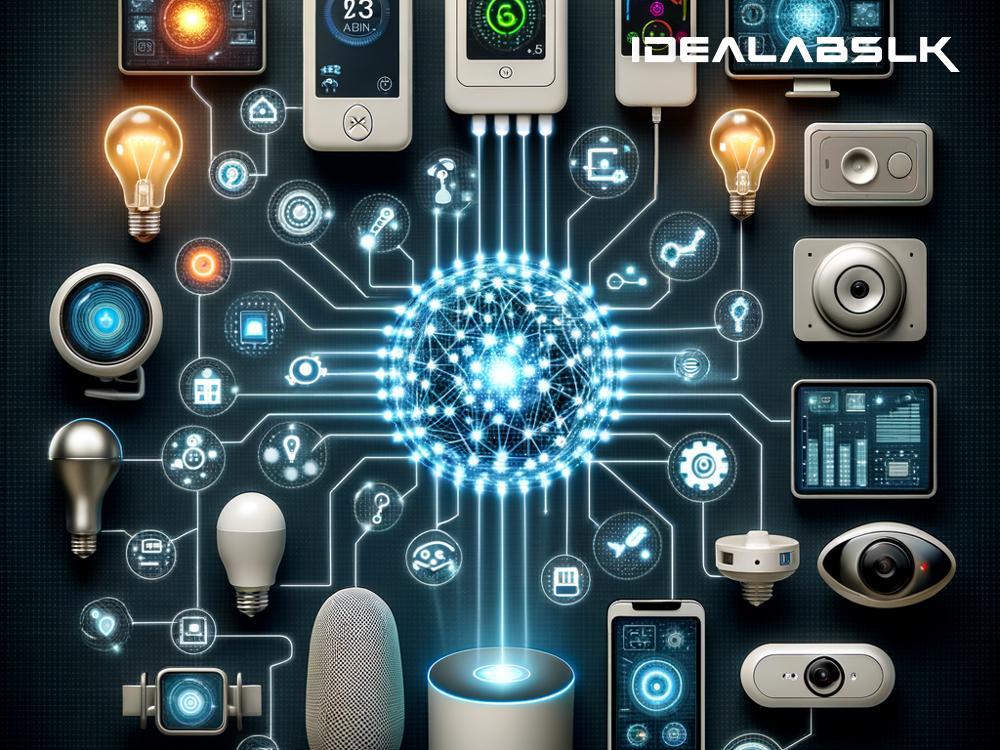How AI Makes Smart Homes Even Smarter
Imagine you’re arriving home from a long day of work. Your home already knows you’re near. The lights turn on to welcome you, the thermostat adjusts to your preferred temperature, and your favorite relaxing playlist starts playing in the background. This isn’t a scene from a sci-fi movie but the reality of living in a smart home ecosystem improved by Artificial Intelligence (AI). In today’s blog, let’s dive into how AI is revolutionizing our homes, making them smarter and more interconnected than ever before.
Understanding Smart Home Ecosystems
Before we talk about AI, let’s understand what we mean by a smart home ecosystem. A smart home ecosystem refers to a network of devices—like lights, thermostats, cameras, and appliances—that are connected through the internet. These devices communicate with each other and can be controlled remotely through your smartphone or a central hub. It’s like having a bunch of highly efficient assistants ready to help you at a moment's notice.
The Role of AI in Smart Homes
AI is like the brain that makes these assistants not just efficient but also intelligent. Here's how AI elevates the smart home experience by improving interconnectivity:
Learning Preferences
AI in smart homes learns from your behaviors and routines. If you usually turn down the lights and lower the thermostat before bed, your smart home will start doing these tasks for you automatically. This personalized automation makes managing your home less of a chore and more of a seamless experience.
Energy Efficiency
One of the biggest benefits of AI-enhanced smart homes is increased energy efficiency. AI can analyze your usage patterns and the home's energy needs to optimize lighting, heating, and cooling systems, reducing waste and saving you money on your bills.
Enhanced Security
Smart home ecosystems aren’t just about convenience; they also enhance security. AI can differentiate between routine activities and unusual events. If an unrecognized face appears at your door or an unusual sound is detected, your system can alert you immediately. This proactive approach keeps your home safer.
Interconnected Devices
AI improves communication among the various devices in your smart home ecosystem. For example, if your smart fridge notices that you’re running low on milk, it can communicate with your smart assistant to remind you to buy milk or even place an order for you. This level of interconnectivity ensures your home runs smoothly.
Accessibility and Assistance
For individuals with mobility issues or disabilities, AI in smart homes can be life-changing. Voice commands can control lights, lock doors, or call for help in emergencies, providing independence and peace of mind.
The Future is Connected
As AI technology continues to evolve, the potential for smart home ecosystems expands. Imagine predictive maintenance where your home informs you about a leaking pipe before it becomes a major problem, or adaptive environments that change lighting and temperature not just based on time of day but also according to your mood or activity.
Simplifying the Complex
You might think setting up and maintaining a smart home ecosystem is complicated, but AI simplifies this process. Many systems are designed to be user-friendly, with intuitive apps and devices that easily connect. And with AI, your home learns and adapts to your preferences over time, reducing the need for manual adjustments.
A Note on Privacy and Security
While the benefits are plentiful, it’s also vital to mention the importance of privacy and security within smart home ecosystems. As these systems become more interconnected and reliant on personal data, ensuring this information is secure from hackers is critical. Thankfully, advancements in AI also contribute to improving cybersecurity, providing encryption and continuous monitoring to safeguard your information.
In Conclusion
The magic of AI in smart homes lies in its ability to learn, adapt, and interconnect. This technology transforms our living spaces into environments that not only respond to our needs but anticipate them, making our lives more comfortable, secure, and efficient. As we look to the future, the possibilities of what our smart homes can do seem limitless. The key takeaway? AI doesn’t just connect our devices; it connects us more deeply to our homes, turning them into spaces that truly understand and cater to our needs. The smart home revolution is here, and AI is leading the charge, making the promise of homes that are not just places to live, but partners in our daily lives, a reality.

